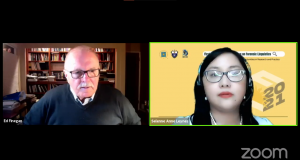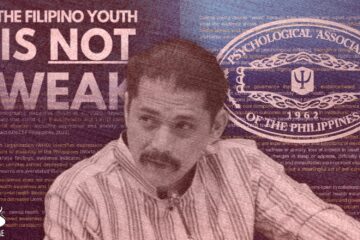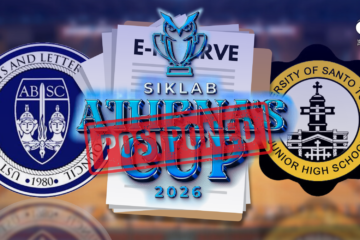
LANGUAGE CAN be used to improve the delivery of justice in the Philippines and to uphold the citizens’ right to a fair trial, experts said.
Through research and practice, forensic linguistics analysis could improve the study of language on equality and the administration of legal systems, International Association of Forensic Linguistics president Isabel Picornell said.
“You (forensic linguists)…have the opportunity to improve the delivery of justice wherever you are, use forensic linguistics to improve good in the world, law, and language. The challenges are many, but the challenges are there to overcome,” Picornell said in an international conference held last Sept. 18.
Eva Ng, a professor at the University of Hong Kong, noted that the right to have free assistance from a forensic linguist is recognized as a fundamental human right to a fair trial.
University of Santo Tomas English department chair Rachelle Lintao said the employment of forensic linguists in the Philippine courtrooms is still a “shot in the dark.” However, “small steps” are being undertaken to promote the use of plain language in legal documents, she added.
“We also have students in the English Language Studies program who are pursuing FL (Forensic Linguistics) for their research work. So, with those steps, hopefully we can help flourish and advocate for FL in the Philippines,” Lintao told The Flame.
Lintao said courtrooms in other countries tap the services of forensic linguists to provide expert opinions in solving cases involving disputed meanings.
“In the future, forensic linguists may be asked in the Philippine courts to do the same,” she said.
Lintao added that through research and practice, forensic linguistics could help reform the language of the law.
Clarity needed
While legal texts aim to be unambiguous, they tend to create double meanings and context-dependent interpretations, but linguists should ensure their clarity, Nihon University Professor Richard Powell said.
“The drafters of legal texts aim for legal clarity, so that judges, administrators, and law enforcers can decide when the rules they contain have been violated, and while this goal should include the ideal of linguistic clarity,” Powell said.
According to Powell, confusion or lack of understanding of rules that are frequently changed by the government leads to ‘alert fatigue,’ causing people to not comply with the rules.
“The public aren’t complacent, they’re confused,” he added.
Powell said linguistics need to consider interplay between quality of messaging, policies, public explanations, and public trust in policymakers and enforcers.
Challenges
University of Southern California professor Edward Finegan cited the need to recognize the difficulties that come with requests for experts’ help since they arise in contested situations.
According to him, deposition and trial testimony could be very challenging as the rebuttal expert or opposing linguist would aim to discredit different linguistic analysis and opinions. However, being a forensic linguist would allow one to apply linguistic knowledge in real-world problems and gain knowledge about it, Finegan added.
“You can contribute your expertise to some conflict resolution even if in some cases you might think it’s not important, but in other cases, it is,” Finegan said.
Finegan noted that forensic linguistics can also contribute to social justice cases, enhance communication skills, supplement income, and offer pro-bono contributions.
“It’s very important for a linguistics expert to recognize that [their] principal duty is to the court, to the trial of fact, to the judge or jury. If you can keep that clearly in your head, then you can address things as truthfully as you know how without any worries or problems,” he said.
The conference is the first-ever international conference on forensic linguistics by the university’s English department. F – Janis Joplin Moises



